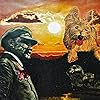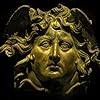Mary Ellen Gembolis
asked:
Has anyone out there read the whole series? I just finished Book 1 and found it a little naval-gazing, too self-absorbed. Does it get any better? Mary Ellen
To answer questions about
My Struggle, Book 1,
please sign up.
Jay "Jakie"
Mary Ellen! I am 100% with you on your opinion. I would not consider myself an literati by any means, but I do love to read and I cannot understand why the literary community is making such a fuss over this author. I have just finished Book 1 and despite my disappointment with it will read Book 2.
Recognizing a good "read" and great literature are, of course, two different thought processes. Knausgaard is no Proust for sure and any resemblance is only in the quantity of texts. I found moments of brilliance and insight, but long passages of absolutely boring, tedious narrative. For a young man given so much independence in his life, Karl Ove seems very, very naive and lacking in self-confidence.
I would like to hear from others reading this author's work to instruct me as to what I may be missing or how to delve deeper into what he may be trying to illustrate with this work. Maybe a Knausgaard group here in GoodReads? If Book 2 doesn't get any better, I'm tossing it into my pile of overrated contemporary authors. (For a very similar autobiographical type narrative, except with excellent, impassioned writing and characters look into Elena Ferrante's Neapolitan novels.)
Recognizing a good "read" and great literature are, of course, two different thought processes. Knausgaard is no Proust for sure and any resemblance is only in the quantity of texts. I found moments of brilliance and insight, but long passages of absolutely boring, tedious narrative. For a young man given so much independence in his life, Karl Ove seems very, very naive and lacking in self-confidence.
I would like to hear from others reading this author's work to instruct me as to what I may be missing or how to delve deeper into what he may be trying to illustrate with this work. Maybe a Knausgaard group here in GoodReads? If Book 2 doesn't get any better, I'm tossing it into my pile of overrated contemporary authors. (For a very similar autobiographical type narrative, except with excellent, impassioned writing and characters look into Elena Ferrante's Neapolitan novels.)
Bert Blommen
I guess it is a 'love it or hare it' I guess.
I have read 5 out of 6 and I think it is absolutely brilliant, though I have met people who don't understand the fuzz.
If you found part 1 'naval-gazing, too self-absorbed', you aren't going to like the rest neither I'm afraid. Like Maya said, it is a bit the point.
I was just very touched by the honesty, and felt completely pulled into his life. and in the meantime, it started to make me discover my own youth again, surfing on Karl Oves memories you start examining your own life again.
I have read 5 out of 6 and I think it is absolutely brilliant, though I have met people who don't understand the fuzz.
If you found part 1 'naval-gazing, too self-absorbed', you aren't going to like the rest neither I'm afraid. Like Maya said, it is a bit the point.
I was just very touched by the honesty, and felt completely pulled into his life. and in the meantime, it started to make me discover my own youth again, surfing on Karl Oves memories you start examining your own life again.
Maya Jurt
Jake and MaryEllen: I read 1 to 4, and I am waiting for 5 to become available in pocket format.
You mean navel-gazing? Yes, it is. And that is the whole point. I think no writer has ever given such a total insight into his psyche and his development from boy to adult, and into his family background. Total honesty. No self-aggrandizement. It is life as it is in literary form, a social study of Norwegian and later Swedish society. I can't judge the Norwegian original, only the English translation which I find with less flaws than other translations of books from famous writers.
The title: the version I have is called "My struggle". If the Norwegians have no problem with "Min Kamp", that's fine with me.
Some passages are even poetic, and quite often humorous. There are difficult pages, most difficult his senseless drinking described in Dancing in the Dark (book 4). What he describes took place in 1986 when Knausgaard was 18 - a time when getting stone drunk on weekends was a favorite pastime for the youth of Scandinavia. I guess that has changed.
Karl Ove a very naive youth lacking confidence? Exactly. Even in 2016, we have boys growing up and feeling what he describes. It all depends on if we want to know about it.
If you have not found book 2 (A man in Love) more satisfying, then you should stop reading Knausgaard. Book 3 (Boyhood Island) is difficult to stomach - a father mistreating his child, and a child hating his father - and Book 4 (Dancing in the Dark) is indeed very dark.
Fortunately, Knausgaard is no Proust. Who reads Proust today? I read "À la recherche du temps perdu" in French (7 volumes often translated as "Remembrance of Things Past") You would be more bored than with Knausgaard. Proust is a man of the past, totally overrated today because of his influence on the literati of his time. Somerset Maugham called the novel the "greatest fiction to date". Fiction it was. But what Knausgaard describes is stark reality. And that is - for me - a rough diamond in the glittering world of fiction.
You mean navel-gazing? Yes, it is. And that is the whole point. I think no writer has ever given such a total insight into his psyche and his development from boy to adult, and into his family background. Total honesty. No self-aggrandizement. It is life as it is in literary form, a social study of Norwegian and later Swedish society. I can't judge the Norwegian original, only the English translation which I find with less flaws than other translations of books from famous writers.
The title: the version I have is called "My struggle". If the Norwegians have no problem with "Min Kamp", that's fine with me.
Some passages are even poetic, and quite often humorous. There are difficult pages, most difficult his senseless drinking described in Dancing in the Dark (book 4). What he describes took place in 1986 when Knausgaard was 18 - a time when getting stone drunk on weekends was a favorite pastime for the youth of Scandinavia. I guess that has changed.
Karl Ove a very naive youth lacking confidence? Exactly. Even in 2016, we have boys growing up and feeling what he describes. It all depends on if we want to know about it.
If you have not found book 2 (A man in Love) more satisfying, then you should stop reading Knausgaard. Book 3 (Boyhood Island) is difficult to stomach - a father mistreating his child, and a child hating his father - and Book 4 (Dancing in the Dark) is indeed very dark.
Fortunately, Knausgaard is no Proust. Who reads Proust today? I read "À la recherche du temps perdu" in French (7 volumes often translated as "Remembrance of Things Past") You would be more bored than with Knausgaard. Proust is a man of the past, totally overrated today because of his influence on the literati of his time. Somerset Maugham called the novel the "greatest fiction to date". Fiction it was. But what Knausgaard describes is stark reality. And that is - for me - a rough diamond in the glittering world of fiction.
Micklemas
Half way through the first book. I don't know if I love it or hate it. At times, I love it. His teenaged angst is something that really resonates. Whole pages dedicated to not very interesting moments of adoloescence. From a failed band performance in a shopping center, to getting some beers at New Years Eve. I get how that is epic stuff to a 16 year old and I love it. It makes me want to read about him as he grows into a man.
But for every 2 or 3 moments like that, there are whole paragraphs (or pages) about some trully mundane stuff. For example, the description on how his grandmother has a green thumb, was too much. Especially for a character who had just been introduced and seemingly will not have a major role. So far, the book has been good enough to keep me reading.
But for every 2 or 3 moments like that, there are whole paragraphs (or pages) about some trully mundane stuff. For example, the description on how his grandmother has a green thumb, was too much. Especially for a character who had just been introduced and seemingly will not have a major role. So far, the book has been good enough to keep me reading.
Andy
I'm afraid that I have just given up on this book after 120 pages. I agree about it being self-absorbed. Nothing of any real consequence has happened. I may well have too short an attention span but I am finding it impossible to get absorbed in such a prosaic progression of minor occurrences.
Gregory Carniel
It had a hint of 'catcher in the rye' / 'on the road' to it, although not that enjoyable. My struggle was to finish the read, now onto better books. :)
Loring Wirbel
I like Book 2 far more than Book 1. The English translation of Book 6 is only out in the expensive wide hardback edition. I have the first five in Farrar Straus paperback editions. I think the key is not to binge-read. Read one book every few months or so. I was used to the intense analysis from reading Proust, but I will say that I enjoy Knausgaard a lot more than Proust because the French author was a whiney bedridden hypochondriac, while Knausgaard is a vibrant being-in-the-world sort of guy, even though he can be a jackass from time to time.
Sofia Capriani
It is not mandatory to like Knausgaard or to read his books. As with many other authors, you feel the connection or not. He does not think that he has to be liked. I am now in the middle of the Book Six, which discusses his urge to publish and write his novel in spite of negative, even threatening reaction from his own uncle (Gunnar, from the first book). He knows that he will hurt his wife Linda, whom he loves, by publishing the book, and probably risk his own marriage (it really happened). The whole hexalogy is about his obsession with writing and need to express himself through writing. This is one similarity to Proust, who found redemption through writing, in spite of ephemeral and often despicable life he was leading. It is the topic which is not attractive to many readers. Of course, there are a lot of Knausgaard's observations and reflexions through the books that a lot of readers find irresistible. For example, I cannot recall the representation of modern marriage that would be more acurate than Knausgaard's. His rummaging through the nature of family relations, either with his parents and brother, either with his own kids or distant relatives, is also unique in contemporary literature. There are many fine passages in his books that deal with nature, although norwegian nature is not so charming as french countryside in Proust's novel. Knausgaard is always struggling, hence the title My stuggle is very accurate, although misleading for everybody that connects the title with other, notorious book. His place in literature is not really secured, but more than million copies sold in Norway points that he touched the nerve of his fellow citizens.
Peter Handke, Nobel laureate and Knausgaard's role model said that he is not the fan because norwegian's novel doesn't "breathe". Yes, there are many passages that could be ommitted, and it seems to me that his style or craft of novel-building is not comparable to Proust's or Handke's (I am not reading in norwegian so I could not tell for sure). But, if we want to place him among the others contemporary novelists, he is definitely one to be counted among leading ones. He is serious, dedicated, tells the story of the modern individual confronted with contemporary mandatory way of life, trying to find his way through it, without easy solutions. It is not light reading, so if you don't resonate with his way of writing and the topics about which he is writing, just give up.
Peter Handke, Nobel laureate and Knausgaard's role model said that he is not the fan because norwegian's novel doesn't "breathe". Yes, there are many passages that could be ommitted, and it seems to me that his style or craft of novel-building is not comparable to Proust's or Handke's (I am not reading in norwegian so I could not tell for sure). But, if we want to place him among the others contemporary novelists, he is definitely one to be counted among leading ones. He is serious, dedicated, tells the story of the modern individual confronted with contemporary mandatory way of life, trying to find his way through it, without easy solutions. It is not light reading, so if you don't resonate with his way of writing and the topics about which he is writing, just give up.
Dea Elmi
I love his books, I hadn't thought about the Hitler reference. He is quite liberal from what I can tell. The writing is so pure and luminous in all his banality at times, and ugliness and spirt. I adore this author. Currently 3/4 through book one but I have started book two. I have the entire collection. I read it in the morning or at night before I fall asleep. <3
Pedro Anjos
I absolutely agree with Jay "Jakie"s answer to your question - even though it is clear the author is a good writer, the book simply did not seem that interesting to me - he is naive, self-absorbed and the events and people described are just not that extraordinary or interesting. Absolutely not one of the great contemporary works.
Anona
I have read the whole series and found all of it tedious and self-indulgent. Some have said he's the "Proust" of our generation. I think not. Because the books were so highly regarded, I pushed myself to read each one. I laugh because I began thinking of "My Struggle" as my struggle. Well written? Yes, but boring, tedious, self-whining, and indulgent. Existential angst ad nauseam.
Maria Jalea
I started with the third book first because I wanted to see if it would be the same if I read it in an unconventional way, I barely started the first book, but I can say that it feels better this way. The author himself recommended that we can start however we want since he didn't write in a very strict chronological order (but more by how he remembered things).
I haven't read the other books yet because they aren't yet translated into my language. But I oftenly speak with my Norwegian teacher (the translator of the first and fifth volume) and she gave me an insight of the latter one. She said that Knausgård is more mature in the fifth book and you can definitely feel an improvement speaking from the way he sees and explains things.
I'd say try it yourself ('cause there is no other way of finding out). The second book is about his relationship with his wife, the second one is about his childhood. Surprinsingly, I can relate sooo much to the child Knausgård, even if he's from a country with a verrry different development than mine. Plus, the time gap between our generations.
By the way, have you read the other books already? I see that an year passed since you asked this question sooo...?
I haven't read the other books yet because they aren't yet translated into my language. But I oftenly speak with my Norwegian teacher (the translator of the first and fifth volume) and she gave me an insight of the latter one. She said that Knausgård is more mature in the fifth book and you can definitely feel an improvement speaking from the way he sees and explains things.
I'd say try it yourself ('cause there is no other way of finding out). The second book is about his relationship with his wife, the second one is about his childhood. Surprinsingly, I can relate sooo much to the child Knausgård, even if he's from a country with a verrry different development than mine. Plus, the time gap between our generations.
By the way, have you read the other books already? I see that an year passed since you asked this question sooo...?
About Goodreads Q&A
Ask and answer questions about books!
You can pose questions to the Goodreads community with Reader Q&A, or ask your favorite author a question with Ask the Author.
See Featured Authors Answering Questions
Learn more












